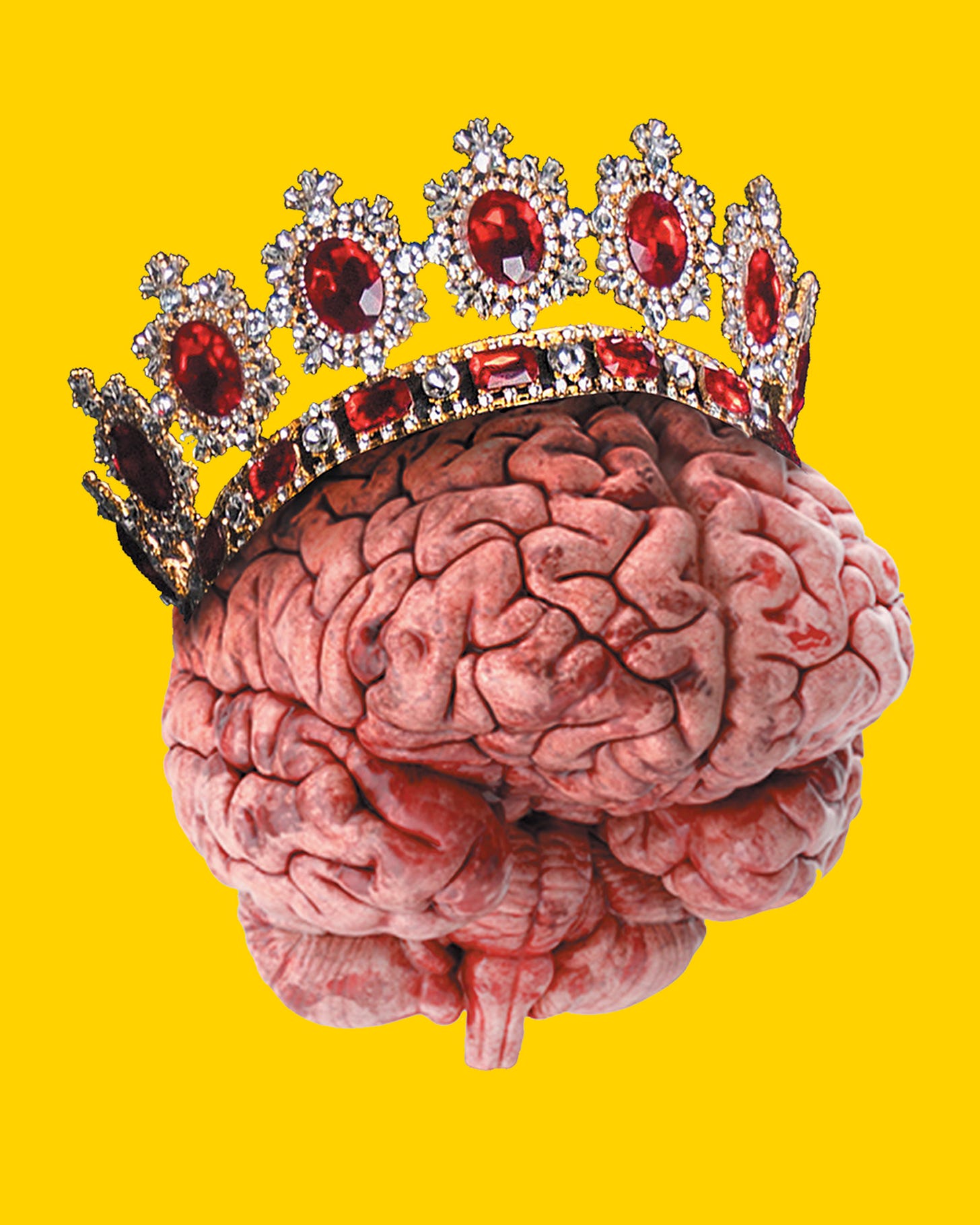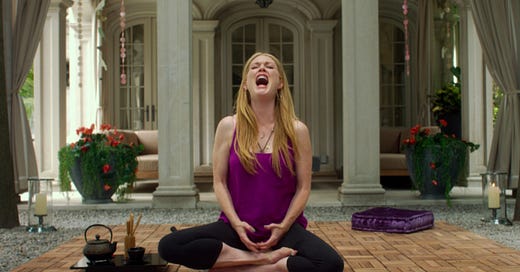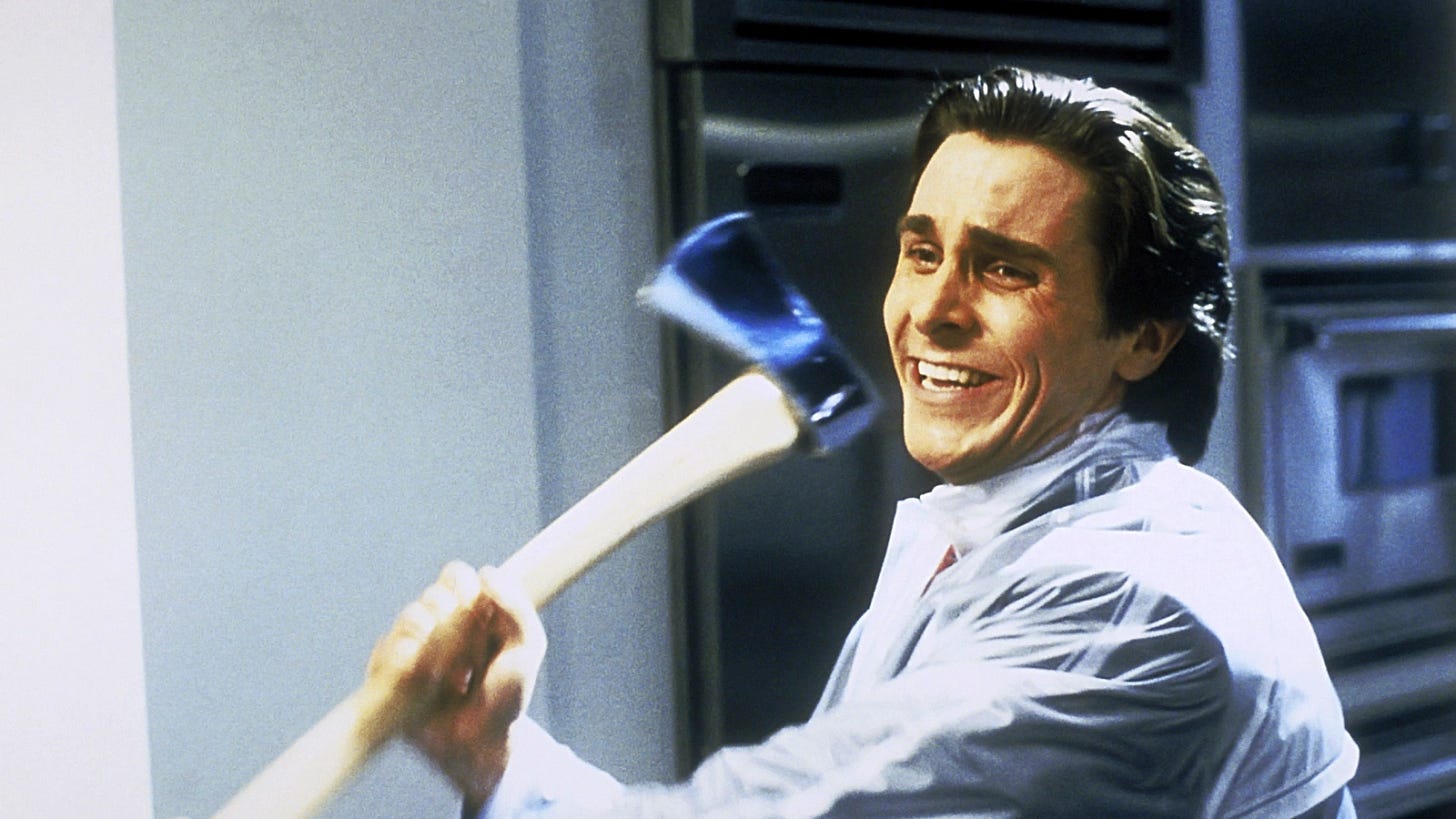From the body horror of David Cronenberg and Brett-Easton Ellis to Jacque Lacan's 'jouissance' and J.G. Ballard's 'Super-Cannes', take a deep dive into wellness cults, toxic positivity, nepo baby discourse, and the parasitic dream of fame that animates the bloated corpse of capitalism.
This month’s Strange Exiles is a solo flight hosted by Bram E. Gieben. The Strange Exiles theme is by Asthmatic Astronaut of This Is Not Pop. Thanks for listening and subscribing. Here are this month’s reading recommendations.
Celebrity Skin: Reading recommendations

Let’s kick off with the same quote that begins the episode, from this podcast’s premiere problematic fave, Slavoj Žižek:
“Happiness is for opportunists. So I think that the only life of deep satisfaction is a life of eternal struggle, especially struggle with oneself… If you want to remain happy, just remain stupid. Authentic masters are never happy; happiness is a category of slaves.” (Guardian webchat, 2014)
When Žižek talks about slaves, it’s within a specific context, that of the ‘master-slave dialectic’ in Hegel’s ‘Phenomenology of Spirit’. Žižek’s theory work is widely regarded as being an original formulation that combines Lacanian psychoanalytical concepts (of which more shortly) with the philosophy of Hegel.
Central to that combination is an understanding of control, desire, and power relations, all of which inform any discussion of celebrity, ambition, and our flawed existences in pursuit of perfection. This is what Žižek means when he says happiness is a category of slaves. The achievement of perfection, the end of struggle, would bring nothing but ennui. Accepting the end of the fight is the same as accepting control. Happiness, then, is not a condition to which we should aspire. It is struggle, suffering, that gives our lives meaning.
Mike Watson’s ‘Towards a Conceptual Militancy’ (Zero Books, 2016) is a brilliant work, offering a substantial challenge to notions of what we consider art and freedom in the current era, especially since the dawn of the internet. His notion of celebrities as ‘Botox ghosts’ is worth the price of admission, and his argument about the plasticity and insubstantiality of ‘famous’ identities was one of the central inspirations for this episode. Zero also published a new edition of MarkFisher’s ‘Capitalist Realism’ this year, so if yours is looking a little dog-eared, you can re-up.
Stephen Metcalfe’s excellent essay on neoliberalism for The Guardian in 2017 is a long read, but a good summary of where the discourse on mainstream economics and politics was a few years ago. Lots of it is still relevant now. I also mentioned Byung-Chul Han’s ‘Psychopolitics: Neoliberalism and new technologies of power’ (Verso, 2017), which begins the philosopher’s analysis of panopticon capitalism and burnout culture.
Louise Perry’s analysis of the division of domestic labour during the pandemic for New Statesman is as excoriating as it is detailed. As Perry says: “The atomised worker with no commitment to any place or person is the worker best able to respond quickly to the demands of the market.” It’s an apt demonstration of how feminist struggles and patriarchal norms are inseparable from capitalist realism.
Haley Nahman’s perceptive piece on social media for The Guardian in 2021 starts with her putting a camera on her pet cat, then takes a turn for the dystopian, analysing surveillance, and our performances for the gaze of the Other. Nahman also writes on Substack, go follow her.
The section of the episode where I mention Jacque Lacan’s seminal re-interpretation of Freudian psychoanalysis is more than a little anaemic. I am somewhat new to Lacan, but familiar with a few of his concepts, especially ‘jouissance’ (excess enjoyment) and the ‘Big Other’. Both are discussed in this episode, and found regularly in the writing of Žižek, among others. This post from Lacan Online offers some more starting points for those who are completely fresh to Lacan’s ideas.
Theory Underground have an excellent series of podcasts on Lacan, with conversations between Michael Downs and David McKerracher, aka Mikey from The Dangerous Maybe blog and the critic formerly known as Theory Pleeb. I mentioned them in last episode’s newsletter, both are members of the ‘Young Žižekians’ and their conversations are designed to be accessible to casual listeners rather than theory nerds. Perhaps Mikey or David or both would be good guests for a future episode on Lacan and Žižek.
Žižek’s own ‘How To Read Lacan’ is on my reading list. His first major work ‘The Sublime Object of Ideology’ is where his synthesis of Hegel and Lacan begins in earnest. I also stumbled across this essay on Lacan and David Lynch by Pale Sutler, who writes:
“… when confronted by what we desire, Lacan’s objet petit a—the unnerving reality of the void—we are naturally distraught at this abyssal sight. It is ‘alien,’ monstrous, too traumatic to be desirable.”
Frankie Boyle’s tremendous lecture at The South Bank Centre in 2015 was previously available online, but has since been deleted. He was invited to speak by the rapper and campaigner Akala. I’m a big fan of Boyle’s interventions in politics and the bleakness of his humour, and I’m looking forward to reading his crime novel. In any case, here’s the quote I used in the episode:
"In late capitalism the ‘self’ is no longer the ego. It’s our brand identity. Most of what we do is not to serve our ego, our own idea of ourselves, but actually to serve our status, other people’s idea of ourselves. We’re the first completely market-oriented generation in history and it has destroyed our ability to be free and conscious. We’re not the people we pretend to be."
Laurie Penny’s 2017 piece for Longreads, ‘The Unforgiving Minute’, is a fierce intervention in the #MeToo discourse. In complete contrast, Brett Easton-Ellis’s 2014 interview with Vanity Fair is titled ‘Generation Wuss’, and is a central beat in the story of the author’s reinvention as a culture warrior (which has done nothing to diminish the excellence of his fiction).
I’ve always been an admirer of ‘American Psycho’ and may return to it again in a future episode. Patrick Bateman is the definitive literary cipher for the 1980s; a richly evocative transposition of the tragic themes of Dostoevsky’s ‘Notes from Underground’ onto Wall Street’s hyper-Darwinian killing floor. Even if Ellis had never written another word, it would rate as one of the 20th century’s greatest works of literature.
I’ll cite him here, but “Fuck Mark Rice-Oxley” is about all I have to say about Mark Rice-Oxley. He advocates for new approaches while reinforcing bootstrap logic, a position I find pretty incoherent. I haven’t read his book, but I imagine it’s on some ‘Iron John’ bullshit.
Ashley Thomson’s piece for Overland on the ‘trickle-down economics of mental health’ is a must-read. His argument against the false promise of therapy culture is simple, and manifestly true - the solutions society offers to solve the problems of mental anguish are principally available to those who have the greatest chance of avoiding suffering. As he writes:
“Talk is not a model that scales – unless you are talking about how to radically redistribute society’s resources so that everyone has access to them, understands how to use them and is in contact with people with whom they can use them."
This part of the podcast goes over some of the same ground as Episode 8, discussing the link that Mark Fisher made between mental health (affective disorders) and capitalist realism. The newsletter for that episode also contains a list of online mental health resources which I have found useful in my own recovery. I ended part 1 of the episode with a quote from an unattributed essay on the website ‘The School of Life’:
“In the midst of a breakdown, we often wonder whether we have gone mad. We have not. We’re behaving oddly no doubt, but beneath the surface agitation, we are on a hidden yet logical search for health.
We haven’t become ill; we were ill already. Our crisis, if we can get through it, is an attempt to dislodge us from a toxic status quo and an insistent call to rebuild our lives on a more authentic and sincere basis.”
This is a really good website with tons of resources for self-management of mental health and stress conditions. It’s quite corporate, and very rooted in techniques like Cognitive Behavioural Therapy. Given that I touched on the dangers of ‘therapism’ and overdiagnosis in this episode, and looked with a sceptical eye on self-management of conditions, it’s important to note that in the absence of adequate state or societal provision, it is always going to be up to the individual to manage their symptoms (for better or worse). School of Life is a resource I return to again and again. I hope it helps you.
In the back half of the episode I talked about monsters, so it seems apt to offer a quotation from the greatest monster story of all time:
“I expected this reception,” said the daemon. “All men hate the wretched; how, then, must I be hated, who am miserable beyond all living things!”
- Mary Shelley, ‘Frankenstein’
I spent a lot of time on ‘Maps to the Stars’, the 2014 David Cronenberg film starring Julianne Moore and Robert Pattinson. I was not a huge fan of this on my first watch, but I think it’s aged well. A lot of Cronenberg Sr.’s later work is critically under-appreciated, and will grow in reputation as time goes by. I’d particularly recommend ‘Eastern Promises’, which was the first time he perfected the blend of tension and sudden violence that would replace the ‘venereal horror’ of his groundbreaking 70s and 80s films.
I dunk on Brandon Cronenberg a bit in this episode, but I genuinely think he is a great director in the making. ‘Infinity Pool’ is fun but under-baked, held together by some fine performances. It only occurred to me after recording that Alexander Skarsgård is massively part of the ‘nepo baby’ discourse too, as this recent Guardian interview proves. You should definitely check out Cronenberg Jr.’s ‘Possessor’ if you can. It’s the most original cyberpunk movie since ‘Sleep Dealer’, and features an Andrea Riseborough performance you cannot look away from.
J.G. Ballard is the most important British novelist of the late twentieth century, and it’s fascinating to me that the obsession with Ballard has been passed, like a virus, from Cronenberg to Cronenberg. I started re-reading ‘Super-Cannes’ when I found out Brandon Cronenberg would direct and show-run a TV adaptation. Cronenberg Sr. directed an adaptation of ‘Crash’, but his early work is also strongly Ballardian in its themes and settings. ‘Videodrome’ is pure Ballard (by way of Burroughs), featuring a Kurtz-esque, mad scientist and final boss to rival Wilder Penrose, in the form of Professor Brian O’Blivion.
If you have the stomach for it, Cronenberg’s 1975 feature debut ‘Shivers’ evokes Ballard’s ‘High Rise’. They were released in the same year, suggesting a strange symmetry rather than a direct Ballardian influence on the young Cronenberg (at least at first). The excellent Ben Wheatley adaptation of ‘High Rise’ also has strong Cronenberg vibes. Perhaps there’s a thread that ties these films together with an analysis of the ‘tower assault’ action of ‘The Raid’ and its science fiction derivative ‘Dredd’. The latter’s source material in the British comic 2000AD is of the same aesthetic and era, arguably, as early Cronenberg and mid-period Ballard, and explores many of the same themes of urban and moral decay.
Beyond the essays, books and films I discussed, there have been some excellent pieces on topics around wellness, therapy and psychology in the past month. Duncan Reyburn wrote about 'the ‘zombification’ of therapy via AI chatbots over on his Substack, Ecuscatastrapologist. As he asks, “Who really wants a dead therapist to help you through a difficult time?” On a somewhat related note, Ben Burgis had some interesting thoughts about large language models, narrow AI, and Noam Chomsky’s recent comments on Chat GPT. Bringing things full circle, our old mate Slavoj also chimed in on Chat GPT this month for Project Syndicate.
Also this month, Freddie deBoer wrote a characteristically frank and nuanced piece on psychosis for his Substack which has relevance for my reading of psychotic violence as catharsis for elites, morally speaking. DeBoer has had his own experiences with mental health and recovery, which he writes about eloquently. His essay ‘Planet of Cops’ is simultaneously one of the best things I’ve read about about the policing of speech and behaviour, and a perfect example of the searing negative insight that accompanies experiences like mania, depression or psychosis.
Next up on Strange Exiles: Juice Aleem

Black futurist and rap pioneer Juice Aleem is our next guest. Curator of the Afroflux festival and Birmingham’s annual hip-hop culture celebration B-Side, he started out as a hip-hop artist with his crew Gamma, before joining the seminal New Flesh for Old alongside DJ and producer Part 2 and signing to Big Dada.
Now a cultural critic and historian, in 2016 he released ‘Afrofutures and Astro-Black Travel’, a collection of essays that defined and expanded the concept of ‘Afrofuturism’ in art, culture, history and writing.
I sat down with him to discuss his curation, his ideas, and his legacy as an artist. Look out for our conversation in April 2023.
Subscribe to the podcast at sptfy.com/strangeexiles
Follow @strangeexiles for updates
Listeners on Apple Podcasts and other (non-Spotify) services, please note:
Spotify recently rolled Anchor.fm into their in-house podcasting service, and disabled all outside distribution with no advance warning.
We now have to re-submit our podcast URLs manually to every non-Spotify service.
This might take a while! In the meantime, you can stream in your browser over here. Apologies for the inconvenience while we get everything updated!





